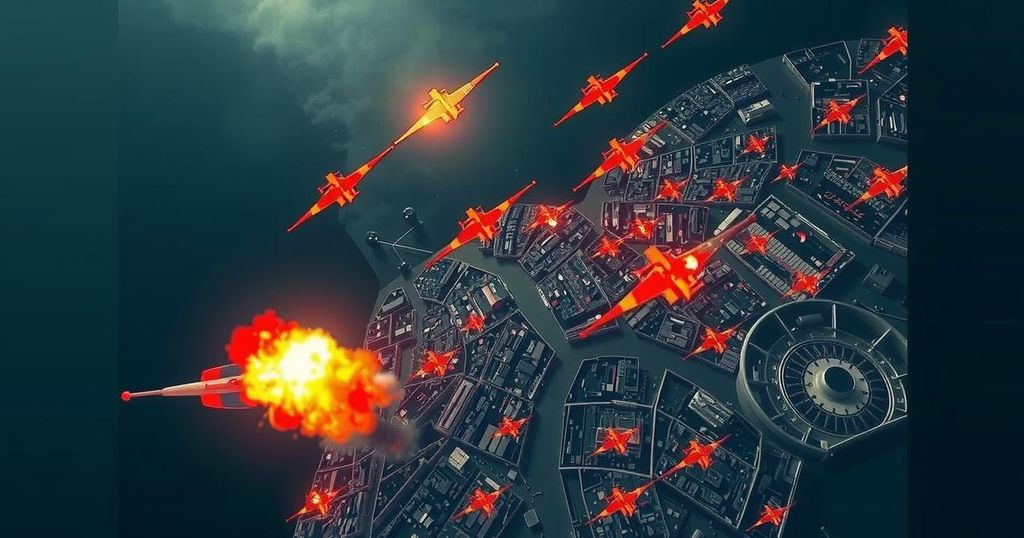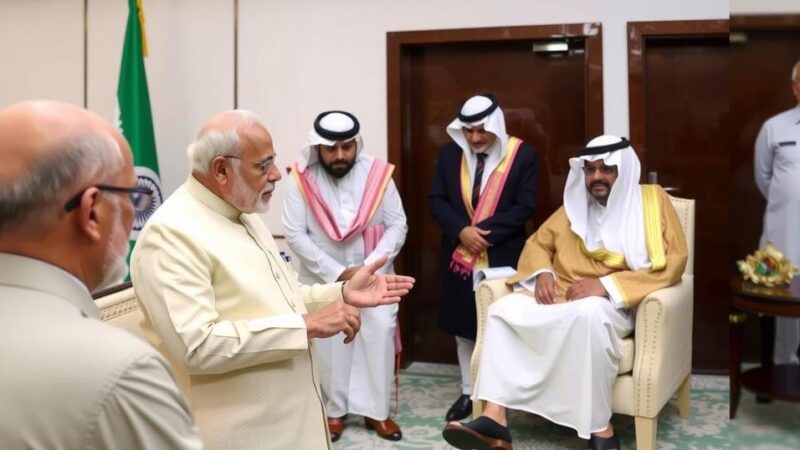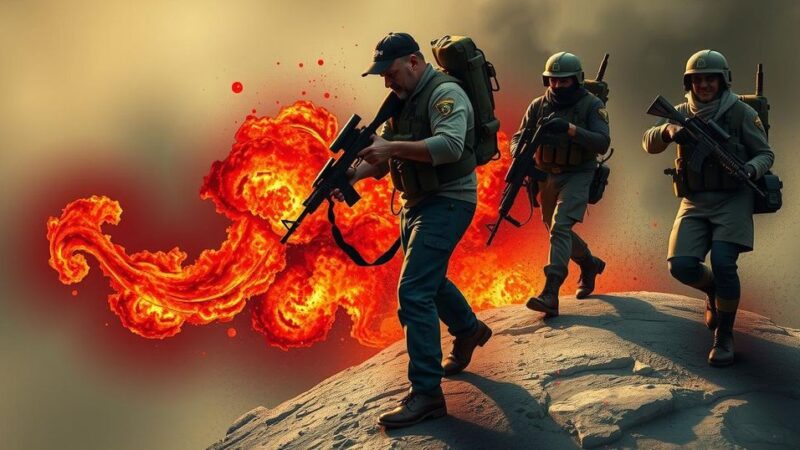Israeli airstrikes have killed at least 22 people in northern Gaza, predominantly women and children, as the conflict escalates. Separately, a truck ramming incident near Tel Aviv injured 35 individuals. The humanitarian situation in Gaza has been described as catastrophic, with calls for urgent international aid as the violence continues unabated.
Israeli military operations in northern Gaza have resulted in the deaths of at least 22 individuals, predominantly women and children, according to reports from Palestinian authorities. This latest escalation comes as Israel’s offensive in the beleaguered region enters its third week, with humanitarian conditions deteriorating rapidly. In a separate incident, a truck rammed into a bus stop in proximity to Tel Aviv, injuring around 35 individuals, complicating an already tense situation. On September 29, an air raid targeted a residential building in Ain el-Delb, resulting in over 70 fatalities and numerous injuries, highlighting the severity of the ongoing conflict. Reports indicate that the Israeli strikes are purportedly aimed at militant targets, with Israeli officials maintaining that they are taking measures to avoid civilian casualties. However, the humanitarian impact on the local population is immense, with various aid groups labeling the situation as catastrophic. Iran’s supreme leader addressed the Israeli airstrikes, suggesting that while the severity of these attacks should not be overstated, they are also not to be minimized. This statement indicates Iran’s cautious approach in considering its response to the escalated tensions, particularly following Israeli airstrikes on Iranian military installations. In the aftermath of the truck ramming incident, which coincided with a high-traffic return to work period after holiday celebrations, Israeli police reported that the attacker was neutralized, further indicating the incident’s classification as an attack. The pattern of vehicle ramming attacks by Palestinians has raised security concerns amidst the intensified hostilities in the wake of the Gaza conflict. Aid organizations have reiterated their concerns about the grim humanitarian circumstances, with limited access to essential supplies and medical care exacerbating the plight of civilians in northern Gaza. The International Committee of the Red Cross has denounced the conditions described as “horrific,” with many civilians rendered immobile due to the ongoing violence and destruction. The overarching conflict began with a surprise attack by Hamas on October 7, 2023, which led to a substantial Israeli military response, resulting in a tragic loss of life on both sides, with numbers indicating a significant toll primarily among civilians. The devastating effects of the conflict have left nearly 90% of Gaza’s population displaced, straining humanitarian resources while intensifying the calls for international intervention.
The article discusses the ongoing violence and conflict between Israel and Palestinian groups, particularly in Gaza, highlighting the recent escalation of Israeli airstrikes in response to attacks from militants. This context illustrates the backdrop of retaliatory military action and the resulting humanitarian crisis. The situation is further complicated by broader regional tensions involving Iran, which has recently faced Israeli military strikes aimed at its military facilities in response to missile attacks targeted at Israel. The historical backdrop of the conflict is characterized by cycles of violence and retaliatory measures that have continuously affected the civilian populations of both sides, compounding the humanitarian challenges in the region.
The current violence in Gaza underscores a critical humanitarian crisis, exacerbated by military actions that predominantly impact innocent civilians. The tragic loss of life due to Israeli airstrikes, coupled with the violent vehicle attack near Tel Aviv, reflects the heightened tensions in the region. As international bodies call for alleviation of the humanitarian situation, the possibility of escalating conflict remains a significant concern, particularly with the precarious balance of regional power influenced by Iran’s response to Israeli actions.
Original Source: apnews.com







